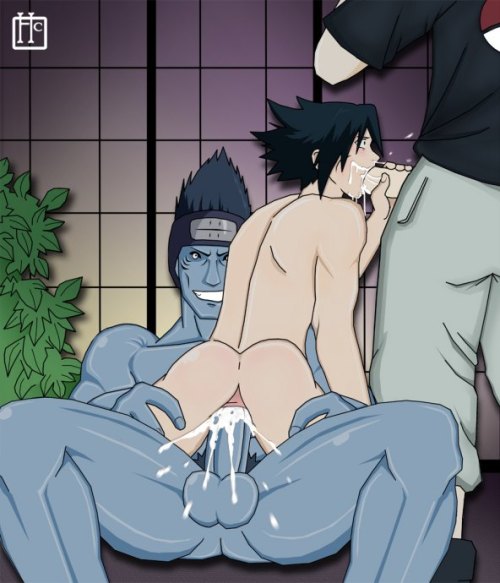Gay Japan News; Reports
Gay Life in Japan (blog+info)
Page update March 2008
(1) Japanese Cock-Tales
Thai Guys Magazine, Bangkok
Originally published on www.globalgayz.com/
 I was in Tokyo for a seminar and in the elevator of my hotel I noticed a beautiful young man with pitch-black hair and alabaster-skin smiling at me. To cut a long story short, after a brief conversation in the coffee shop, we ended up in my hotel room and made love passionately. It was like a dream. He wanted nothing from me (other than a lot of tenderness) and he even insisted on paying for the meals we ate out, even though he must have been about half my age. 'This is MY country,' were his words uttered with a smile, but also with a certain pride.
I was in Tokyo for a seminar and in the elevator of my hotel I noticed a beautiful young man with pitch-black hair and alabaster-skin smiling at me. To cut a long story short, after a brief conversation in the coffee shop, we ended up in my hotel room and made love passionately. It was like a dream. He wanted nothing from me (other than a lot of tenderness) and he even insisted on paying for the meals we ate out, even though he must have been about half my age. 'This is MY country,' were his words uttered with a smile, but also with a certain pride.The founder of the Noh-theatre, Zeami Motokiyo (1363-1443), is said to have been the lover of the Ashikaga-shogun. In the urban merchant-cultures of Naniwa (Osaka) and Edo (Tokyo) gay brothels peacefully co-existed with heterosexual ones (see the still fascinating account by Ferdinand Karsch: Das gleichgeschlechtliche Leben der Ostasiaten. München, 1906).
Does this mean that average Japanese are aware of this tradition? Unfortunately not! Educated "gaijins" (foreigners) usually know more about Japan's glorious past than the Japanese themselves. The reason is that, starting with the Meiji-era (1867-1912), Western middle-class moral standards were adopted wholesale whilst, on the other hand, the Western sexual revolution of the sixties was largely missed.

Japan has a rich tradition of gay life. In that respect, it can almost be compared to the old Spartan civilization. During the Edo-period (1600-1868), many samurais and daimyos (regional rulers) shared their beds with young pages. While women were needed for continuing family lines, many aristocrats considered a young man an object more worthy of passionate or tender attachment. Romantic love-stories between men abound, as is evident from collections such as Saikaku Ihara's (1642-93) Comrade Loves of the Samurai (Tuttle, 1972).


Prostitution, which used to be a highly respected and sophisticated form of business in old Japan, is officially outlawed. However, everyone knows, that certain massage parlors at Lake Biwa, called "soaplands", offer precisely that. The setting is all that matters, and the absurdity of it all is part of the attraction.
A good thing for gays (native and foreign) in Japan is that there are officially no laws on the books against homosexuality and the age of consent is remarkably low, though vague. Christian moral values have not been adopted, but are rather an affectation of the bourgeois middle-class. Buddhism, all in all, is more tolerant on sexual mores than Christianity, and the native Shintoism has always wisely avoided the formulation of religious doctrine, as well as their accompanying moral prescriptions.
However, in the spirit of Confucianism, family obligations are still being taken seriously by most Japanese. The pressure to marry (if necessary by arrangement, called omiai) is overpowering. For this reason, you will meet many married men in Japanese gay saunas, especially on Sunday afternoons, yearning for a male embrace after they have taken the children to the zoo or played golf with colleagues from work. Secrecy about their double life is the rule, as it is for extra-marital relations in the straight world. Fortunately for them, the Japanese have a talent for looking the other way.


In Japanese saunas one will often encounter a scene that would seem to be quite extraordinary in the West: in the hectic semi-darkness of a mixed room you will see a fat young man lying impassively on the "tatami" (reed-mat), while a handsome and muscular suitor is kneeling next to him, eagerly trying to "please" him in every possible way. These fat boys are called "chubbies" (debu) and are very popular in Japan.
They have their own specialized bars and magazines and there will always be those craving "chubbies" exclusively. Strangely enough, drag queens do not seem to command the (almost shaman-like) respect they enjoy in Thailand. Nevertheless, it is sometimes hard in Japan to determine who is, and who is not, because many young men, especially students, uninhibitedly exhibit a female (long-haired) charm that would inevitably lead to derision in the USA or in Germany. A leather-scene practically does not exist in Japan.

At the entrance to Osaka's most beautiful sauna, Hokuokan (Northern Europe), the startled foreigner will still be greeted by a large sign "Japanese Only". Inside, he will be treated courteously. Not everything is what it seems to be in Japan. Some of the Japanese customers, especially the younger ones, will shy away from foreigners because of their fear of AIDS.
Sometimes it is amusing to watch their fascination with size battle their irrational fears and see which will win out. But one can still observe Japanese indulging in unprotected sex with each other.


The bar-scene is varied and complicated by the well-known difficulty of locating addresses in Japanese cities. It is best, to visit one gaijin-friendly bar (like "Ken's" in Kyoto or "Village" in Osaka-Umeda or "GB" in Tokyo-Shinjuku) and ask the Mama-san (the male, often rather feminine, manager) for directions to other places. The latter also sometimes asks for "your type" and might even try to match you up with another lonely customer. There are bars that welcome foreigners and others that do not. But since there are so many of them, this is not a huge problem. Generally, the gay bars in Japan are much smaller and more intimate than those in the USA or in Europe.
They often consist of a counter, offering seats for about eight customers and perhaps some more seats along the wall. The advantage is that the mama-san feels more responsible for your well-being and will try to engage you in some kind of conversation. The disadvantage is your limited range of operation. You might get stuck between some utter bores and before you can move on to another bar, you will have been relieved of ca. 800 Yen ($7--for the first drink) in Tokyo or Osaka and even 1400 Yen ($12--for the first drink with some tidbits to munch on) in Kyoto and the provinces.
Most bars will have karaoke (the English songs are usually in the back of the book). Often, you will have to pay 100 Yen for each song you select. Whether you sing well or miserably, you will always receive some polite applause, which the mama-san initiates. If you are good, some customer might ask you to sing his favorite English song. If the mama-san is talented, she might sing along with you. Karaoke is not a bad way to relieve you of your loneliness (at least temporarily).
Park cruising seems to have gone out of fashion in Japan, even though there are some areas with long traditions (as mentioned in the gay guides). The reason may be that the saunas have become more prolific and more comfortable. Besides, in the larger cities there are now sex-clubs with "back-rooms", peepholes or mazes, much like in the USA. These charge slightly less than the saunas (less than 2000 Yen--$16) and mainly cater to customers under forty.

Most of these establishments, if they are not brand new, can be found in the various gay magazines (zashi), which can be bought in some bookstores and perused in most saunas and in many bars. Next to the address (in Japanese) there is usually a map, which can be shown to a taxi driver. Until recently, these magazines were the main tool for making contact with like-minded individuals. Many shy boys who had never set foot in a gay bar, not to speak of a sauna, would place an ad in these zashis. Now, however, most of these boys own (or have access to) computers and find friends through the internet (try "Gay Net Japan").
Summing up, we could say that gay contacts in Japan are usually safe and are of a non-commercial nature. On the other hand, Japanese men are almost always much shyer than, e.g., Thais and (probably partly for that reason) linguistically more inhibited. Unfortunately, in this era of ever younger (body-and teeth-conscious) idols (pop-singers) on TV and on stage, the daddy-complex-syndrome that attracted so many foreigners to Japan after the war has more or less disappeared.


As recently as 20 years ago there were still many young Japanese who felt attracted to gaijins, more or less regardless of looks or age, because of their sheer size and "otherness". These foreigners (mostly North-Americans and Australians) symbolized the good life the after-war-generation had grown used to admiring in films and on television.
Nowadays, there are many handsome young Japanese who will only sleep with their own kind, and if they try some sex with a gaijin in a dark sauna-room, they certainly do not want to be seen with him in public.
Therefore, paradoxically, the quest for a lover (or long time companion) seems to be more difficult for many older foreigners than casual sex in an impersonal setting. Even young Westerners, if they are not extraordinarily handsome, seem to suffer from this development. Therefore, our initially quoted idyllic tale, might now be rather the exception which proves the rule. And globetrotters from the West, who might be looking for exotic adventures should be prepared to be somewhat disappointed by modern gay Japan.
Therefore, nowadays Japan sometimes seems to be more Victorian than contemporary Britain or Germany. Foreigners always marvel at the inconsistencies: At certain matsuris (Shinto-festivals) young and not so young Japanese males still freely exhibit luscious buttocks in undoshi (loincloths). These matsuris are a favorite photo opportunity for foreigners and are called oshiri-no matsuri (buttock-matsuris) by the more appreciative.
Yet, no self-respecting Japanese woman would never bare her breasts on a beach, as German women especially are fond of doing. In sentos (public bathhouses), both sexes just barely cover their most precious parts with a skimpy towel like the ones we use for drying dishes, though bathing together is seldom practiced now (with few exceptions in remote areas).




















No comments:
Post a Comment